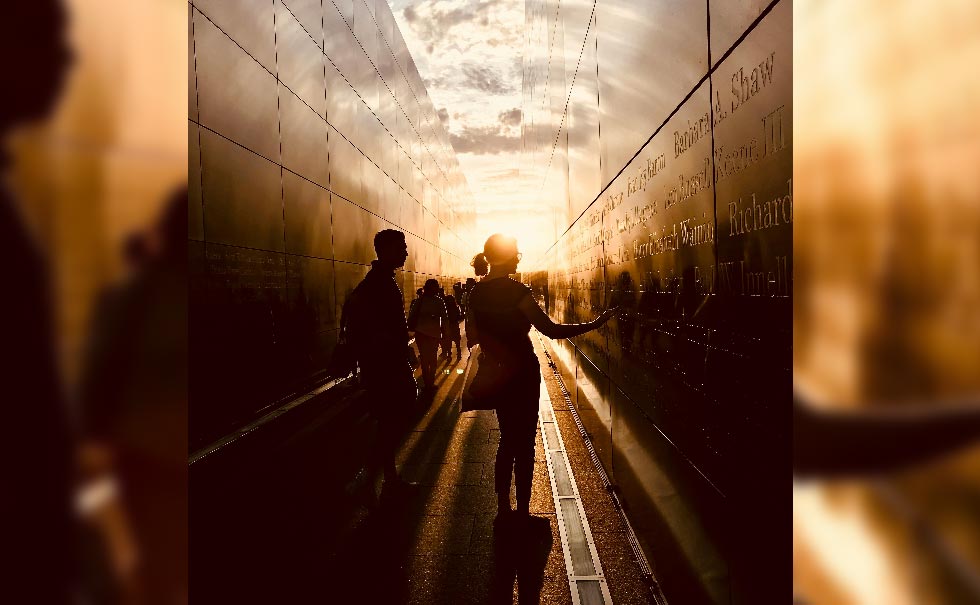Parshat V’etchanan & Tish B’Av
וכִּ֣י עַ֤ם קָדוֹשׁ֙ אַתָּ֔ה לַֽיהֹוָ֖ה אֱלֹהֶ֑יךָ בְּךָ֞ בָּחַ֣ר | יְהֹוָ֣ה אֱלֹהֶ֗יךָ לִֽהְי֥וֹת לוֹ֙ לְעַ֣ם סְגֻלָּ֔ה מִכֹּל֙ הָֽעַמִּ֔ים
אֲשֶׁ֖ר עַל־פְּנֵ֥י הָֽאֲדָמָֽה:
For you are a holy people to Hashem, your God: Hashem your God has chosen you to be His treasured people, out of all the peoples upon the face of the earth.[1]
With this powerful statement at the end of our Parsha we potentially ignite the centuries old rhetoric and age old tropes used against us as a people:
“The Jews think they are better than everyone else”, the chosen people narrative: words like entitlement, privilege, power and others come to mind:
We live in a time where these notions, whether they be religious, nationalistic, political or social, are a veritable powder keg that can be seen erupting on campuses and soapboxes throughout the western world. Arguably much of this argument is the result of decadence: we have so much that our major concerns are now thankfully mostly existential – nonetheless these issues often hold society back from development and continue long standing racial, social and political bias that prevents individuals from the pursuit of their lives and freedoms.
Another side to this debate, however, is that until you believe that you have some kind of unique gift, some calling which only you are able to achieve, success often eludes and dreams all too often go unfulfilled.
My wife has a particularly excellent saying in regards to education, that “every mother thinks her donkey is a racehorse”, that we as parents often see our children as gifted, unique and highly talented – sometimes at the expense of the truth of admitting mediocrity.
Sometimes there is a beautiful marriage and harmony: the parents foster the child’s self-belief in their skill/ability and the child too believes from the positive feedback and constructive criticism that they really are truly gifted in this particular area. The result?
Champions, virtuosos. inventors, rabbis, entrepreneurs, teachers, doctors and mavericks.
Our people have quite a long and well-known history of producing these kinds of individuals – we have a theology that ultimately, we believe that with the right education, help, hard work and blessing from Hashem we can achieve the impossible (or at least the highly improbable!).
Small wonder that this Parsha also contains the most famous and most often recited Jewish prayer, the Shema, in which a focal point of reference is the need to educate children towards our beliefs and connect them to their national identity.
Jews have had a profound effect on education in the various ages and countries we have found ourselves within. Our beloved teacher Rabbi Sacks expressed this as[2]:
“Throughout the centuries, when the vast majority of Europe was illiterate, Jews maintained an educational infrastructure as their highest priority. It is no exaggeration to say that this lay at the heart of the Jewish ability to survive catastrophe, negotiate change and flourish in difficult circumstances.”
This week was also Tish B’Av, a day that commemorates many terrible instances that have befallen our people, most notably the destruction of both temples and the slaughter, enslavement and terror that befell the people during these terrible moments. Lesser known is that this date also marks the beginning of the first Crusade[3] declared by Pope Urban II, the expulsion from England[4], the Spanish and Portuguese Inquisition which resulted in the expulsion of the Jews from the entire Iberian Peninsula[5], when Germany and Russia declared war[6] resulting in massive deportations and pogroms ultimately leading to over 300,000 Jewish civilian deaths and also in the second world war this was the day that deportations[7] from the Warsaw Ghetto to the infamous death camp of Treblinka began.
The incidence of these profound and terrible events occurring on Tish B’Av is not happenstance,
According to the Mishnah [8] five specific historical events occurred on the ninth of Av that warrant fasting[9]: it is a day that has long been commemorated as a day of anguish and pain.
In the Torah scroll as well as in many Siddurim, the Shema is written differently from other verses in the Torah, the Ayin of Shema is enlarged as is the Dalet of Echad, accordingly to Chazal as well as Mystical sources this spells the word עד or witness: the intention or meditation here[10] is that every Jew by reciting the Shema prayers is a witness to Hashem’s unity and Oneness, declaring this fact fearlessly to a world that appears in disunity and chaos.
By remembering and commemorating our shared national history we take ourselves and our children into the future with the understanding of their national identity and the great sacrifices that have been undertaken to reach this place: we bear witness to the fact that Hashem has guided history on both an individual journey and a collective journey of mankind.
Jewish education is not only about the theology or the teaching of specific skills – although those elements are of course present; it contains the spiritual element that causes an individual child to see themselves not only as an empowered individual, a community, a member an ancient people living in modern times but also as a human being connected with all other souls in history. We attempt to pass on not only understanding, but also wisdom and hope that our children and our children’s children may one day live in peace and harmony together and celebrate their existence and Hashem who has blessed us with life.
Tish B’Av contains sadness, fasting and remembrance of deep national pain, but it also contains the spark of hope in a better tomorrow that has seen us as a people through thousands of years of exile.
We have never had our faith quashed; not in Hashem and His Torah nor in a future time of peace and tranquillity, we have never allowed that eternal light to be extinguished – we have never been prevented from raising our children to believe in humanity.
May we be blessed to join our children and our children’s children in a rebuilt Israel, a rebuilt temple in a time of peace.
Shabbat Shalom!
Rabbi Jonathan Goldschmidt 2023 ©
www.rabbigoldschmidt.com
[1] Devarim/Deuteronomy: 7:6
[2] Rabbi Jonathan Sacks: The Dignity of Difference p. 139
[3] 1095CE
[4] 1290CE
[5] 1492CE
[6] August 1st 1914
[7] 1942
[8] Taanit 4:6
[9] The Twelve Spies sent by Moses to observe the land of Canaan returned from their mission. Only two of the spies, Joshua and Caleb, brought a positive report, while the others spoke disparagingly about the land. The majority report caused the Children of Israel to cry, panic and despair of ever entering the “Promised Land”. For this, they were punished by God that their generation would not enter the land.
(The midrash quotes God as saying about this event, “You cried before me pointlessly, I will fix for you [this day as a day of] crying for the generations”, alluding to the future misfortunes which occurred on the same date).
The First Temple built by King Solomon was destroyed by Nebuchadnezzar in 586 BCE, and the population of the Kingdom of Judah was sent into the Babylonian exile.
According to the Nevi’im in the second part of the Tanakh, the First Temple’s destruction began on the 7th of Av (2 Kings 25:8) and continued until the 10th (Jeremiah 52:12). According to the Talmud, the actual destruction of the Temple began on the Ninth of Av, and it continued to burn throughout the Tenth of Av.
The Second Temple built by Ezra and Nehemiah was destroyed by the Romans in 70 CE, scattering the people of Judea and commencing the Jewish exile from the Holy Land.
The Romans subsequently crushed Bar Kokhba’s revolt and destroyed the city of Betar, killing over 400,000 Jewish civilians on 4 August 135 CE.
Following the Bar Kokhba revolt, Roman commander Quintus Tineius Rufus plowed the site of the Temple in Jerusalem and the surrounding area, in 135 CE.
[10] Rokeach; Kol Bo; Abudaram




